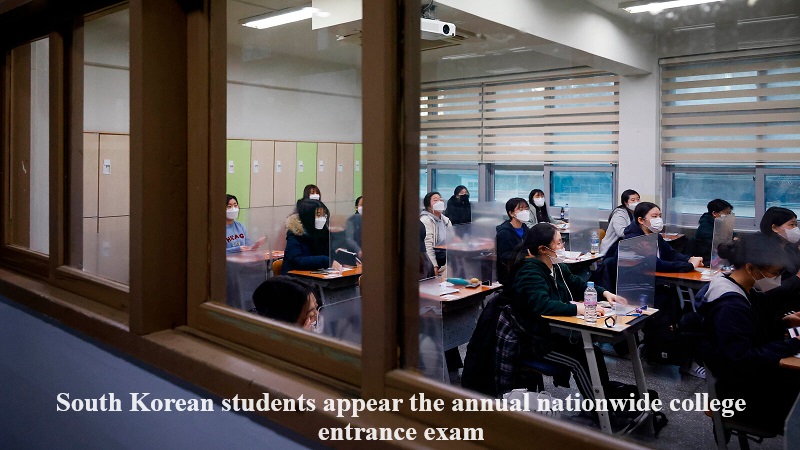
On November 16, more than 500,000 South Korean students participated in the annual nationwide college entrance exam, prompting officials to implement extraordinary measures, such as halting flights and having police on standby. The significance of these restrictions underscores the immense importance of the test, which is often considered life-defining in South Korea’s highly competitive society.
This year, around 505,000 individuals, including high school students and graduates, registered for the nine-hour, single-day, five-session College Scholastic Ability Test (CSAT), held at 1,279 test sites across the country, according to the education ministry. The exam is pivotal for securing positions in top universities and holds significance for social status, lucrative careers, and, in some instances, marriage prospects.
South Korean students face tremendous pressure, contributing to the country’s reputation for high competitiveness and its association with elevated rates of teenage depression and suicide, some of the highest globally.
“I’m nervous and trembling because what I’ve been studying for three years ends with this exam today,” said Lee Min-yup before taking the test at Kyungbock High School in central Seoul. Outside schools, parents expressed support for their children, hugging them and chanting phrases like “Success in Suneung,” the local name for the exam.
To ensure a disturbance-free testing environment, officials took extraordinary steps, including a nationwide 35-minute ban on all aircraft takeoffs and landings during the English listening comprehension portion. Public offices, major businesses, and even the stock market adjusted their opening hours to avoid traffic congestion.
This year, test-takers were not required to wear face masks, unlike the past three years due to the COVID-19 pandemic. Police and regional government officials were on standby to assist students running late.
While the difficulty of this year’s exam has yet to be confirmed, officials stated that it would not feature the controversial “killer questions,” which typically draw from material not covered in the public school curriculum. President Yoon Suk Yeol criticized these questions for contributing to a reliance on private education, a factor behind the country’s declining fertility rate, with South Koreans spending nearly $20 billion on private education last year according to government data.

Post Your Comments